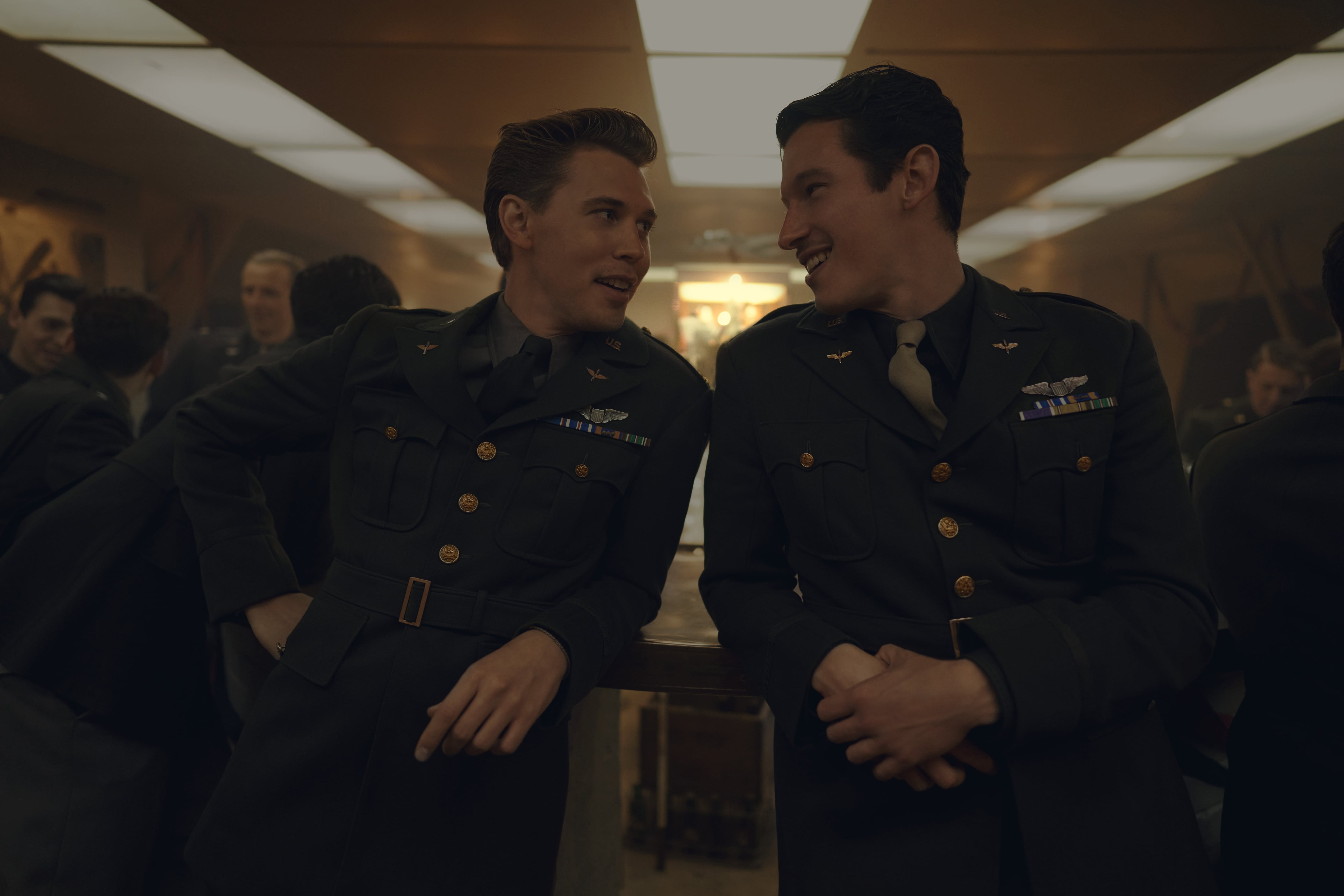The World War II saga of the U.S. Army Air Force’s 100th Bomber Group, nicknamed the Bloody 100th, seemed a harrowing story destined for cinematic recreations from the start. It’s fitting, then, that Steven Spielberg and Tom Hanks would pursue the subject matter to form a trilogy alongside their epic series “Band of Brothers” (2001) and “The Pacific” (2010).
RELATED

Premiering today, the Apple TV+-produced “Masters of the Air” is a masterful military opera set against a backdrop of drama, mortality, love, stunning aerial cinematography, and of course, brotherhood.
While such themes anchor all three series, Hanks and Spielberg have managed to further hone the craft of depicting bonds forged in blood as a formula for over two decades of dazzling television.
History buffs and World War II aficionados will recognize the show’s characters as renowned pilots, operators and strategists whose missions paved the way for victory on the European front — and formed the foundation of the military branch now known as the U.S. Air Force.
The 100th Bomber Group burst onto the scene in 1943 as underdogs flying rickety B-17 bombers against the much more experienced pilots of the German Luftwaffe.
The young pilots, primarily Maj. Gale “Buck” Cleven (Austin Butler) and Maj. John “Bucky” Egan (Callum Turner), embody the prototypical green fly boys anxious to stick it to the Germans — that is, until they actually witness the profound hopelessness of their skyward missions.
Without fighter escorts — especially in the early days of bombing campaigns — B-17s and their crews faced staggering odds to make it back from each mission. Explained in the early episodes, the U.S. military strategy was to bomb Nazi Germany in broad daylight, which, while ensuring better accuracy, made the crews all the more vulnerable to Nazi anti-aircraft fire and fighter aircraft.
It’s for this reason that the U.S. outfit became ominously known as the “Bloody 100th.”
When the series’ pilots take to the skies, dread sets in as anti-aircraft flack renders the crews terrified and nearly ineffective. And that’s before a single Nazi fighter pilot even fires a shot in the series’ dogfights, which provide brilliant cinematic experiences layered with existential fear.
The series is loosely narrated by Lt. Harry Crosby (Anthony Boyle), a navigator who ultimately served 22 months with the unit, seeing the war turn from one of insurmountable odds to an Allied victory.
“Masters of the Air” also pays particular attention to war’s hardships on various levels: PTSD, action in the face of futility, and political rancor. Throughout the series, its characters find solace in bonds forged by positively brutal experiences. Yet, even in victory, a feeling persists that fighting monsters for so long eventually turns one into the very beast being battled.
The show excels in revealing the cost of victory these men endured for the perceived good of mankind. It also hones in on acting as a cog in a war machine that views its troops as numbers instead of human beings — a phenomenon spanning generations of combat.
Other issues depicted in the series mirror the political discourse of today: prejudice, racism, freedom of religion, and lack of resources, which highlight the cyclical nature of mankind’s ability to unite in times of crisis before returning to the status quo in peacetime. The somewhat disjointed inclusion of the later episodes’ Tuskegee Airmen storyline is particularly poignant in this regard.
In simplest terms, “Masters of the Air” is unequivocally American. The series is the personification of American exceptionalism and an acknowledgment that a rag-tag team of plucky youngsters can stand against ultimate evil and persevere.
Watching it will inevitably leave viewers beaming about the grit of U.S. troops who became known as the Greatest Generation. Such feelings, however, may be followed by a looming sense that America today may be too fractured to unite against such an evil without blinking.
The first two episodes of “Masters of the Air” premiere on Jan. 26 on Apple TV+. Additional episodes will drop every Friday after through March 15.
Sarah Sicard is a Senior Editor with Military Times. She previously served as the Digitial Editor of Military Times and the Army Times Editor. Other work can be found at National Defense Magazine, Task & Purpose, and Defense News.




